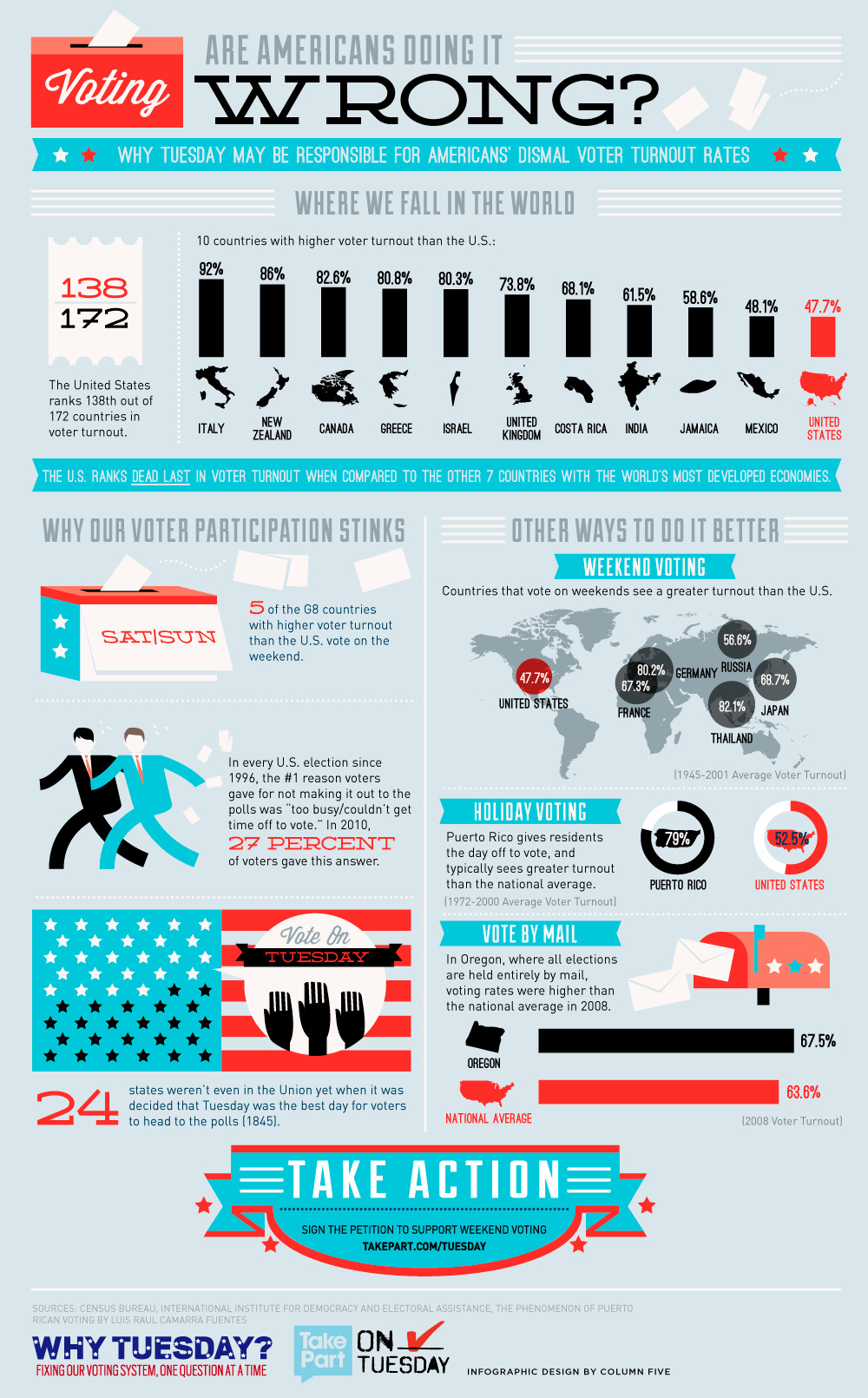Showing posts with label voting. Show all posts
Politics and Work: Participation - Voting, 401(k)s and Wellness
by Matthew Stollak on Tuesday, November 6, 2012
Yesterday's post dealt with the issue of why we vote on Tuesday and its impact on the workplace.
Another challenge is simple voter participation - how do we increase the number of people turning out to the polls? Civic duty has long been perceived as the reason most people vote. Yet, a significant portion of individuals choose to ignore this duty; an estimated 50 million Americans won't vote today. Only 56.8 percent of the voting age population cast a ballot in 2008.
Beyond changing the date, what might increase that participation? In "Get Out the Vote," Donald Green and Alan Gerber found that automated calls only generate one vote per 900 calls (yet, the constant ringing at my home this past week suggests campaigns haven't learned this lesson). Campaign flyers, they suggest, are not much more effective than doing nothing. E-mails are useless.
If those don't work...what does?
Shame.
In "Social Pressure and Voter Turnout:Evidence from a Large Scale Experiment," Gerber, Green, and Christopher Larimer sent out four different pieces of campaign mail to nearly 300,000 people urging them to vote in the 2006 Michigan primary. All four treatments carried a similar message - "DO YOUR CIVIC DUTY - VOTE," but differed as follows:
- "Civic Duty" - Households receiving this type of mailing were told, “Remember your rights and responsibilities as a citizen. Remember to vote.”
- "Hawthorne Effect" - Households receiving this mailing were told “YOU ARE BEING STUDIED!” and informed that their voting behavior would be examined by means of public records.
- "Self" - The “Self” mailing exerts more social pressure by informing recipients that who votes is public information and listing the recent voting record of each registered voter in the household. The word “Voted” appears by names of registered voters in the household who actually voted in the 2004 primary election and the 2004 general election, and a blank space appears if they did not vote.
- "Neighbors" - The fourth mailing ratchets up the social pressure even further by listing not only the household’s voting records but also the voting records of those living nearby. Like the “Self” mailing, the Neighbors” mailing informed the recipient that “we intend to mail an updated chart” after the primary,showing whether members of the household voted in the primary and who among their neighbors had actually voted in the primary.
With the U.S. national election tomorrow, its going to be politics week on the blog.
Today - Why do we vote on Tuesday?
According to whytuesday.org:
In 1845, before Florida, California, and Texas were states or slavery had been abolished, Congress needed to pick a time for Americans to vote. We were an agrarian society. We traveled by horse and buggy. Farmers needed a day to get to the county seat, a day to vote, and a day to get back, without interfering with the three days of worship. So that left Tuesday and Wednesday, but Wednesday was market day. So, Tuesday it was. In 1875 Congress extended the Tuesday date for national House elections and in 1914 for federal Senate elections.Check out this infographic:

However, this is not 1914...we have the opportunity to change when and where we vote. Millions have already taken advantage of early or absentee voting. But, in 15 states, Tuesday is the ONLY day that voting will be allowed.
This means, for many of us, voting may interfere with time spent at work. One must arrive at the polls and brave long lines in the hopes of getting our vote cast without missing our morning check-in at work. Or, we hope to get out early enough from work to make it to the polls before they close.
So, what is your workplace doing to ensure people vote? Are you giving time off to employees to let them make their political choice? Would you support making Election Day a national holiday?








